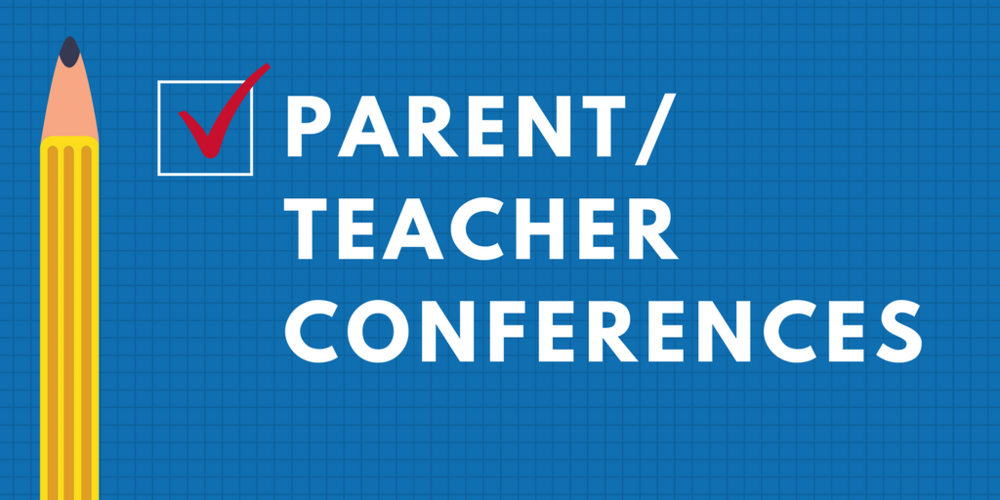
Making the Most of Conference Day
Conferences between parents and teachers (or, in the Middle School, students, parents, and teachers) are an opportunity to make the most of home-school partnership in order not only to gain understanding about the child’s past performance but also to sketch a road map for growth. In order for a conference to live up to its promise, all parties must come to the meeting fully prepared.
HOW TEACHERS PREPARE
For our part, in advance of a conference, teachers must have given thought to the whole child – his/her recent performance, effort, accomplishment, confidence, demeanor, and conduct. What did he/she do particularly well during the term? What was particularly difficult for him/her? If a student has had a difficult term, it is vital that we not only confine our talking points to the two or three biggest concerns so that we don’t appear to be “piling on,” but that we also acknowledge that student’s strengths so that he/she may build on them. It is just as important that when we identify areas of deficiency, we also offer manageable steps for improvement. By contrast, for a student who is excelling, it is our responsibility not only to praise him/her for efforts and accomplishments but also to provide concrete suggestions for growth. If we need to communicate information that could be difficult for a parent to hear, it is incumbent upon us to think, ahead of time, about how we can present that information in a way that a parent can hear it. Most of all, we must remember that, while some parents see their children more clearly than others, almost no parents are truly objective about their children. They’re not supposed to be objective. Their children are the most precious things in their lives. If we keep that in the forefront of our minds as we consider our conversations, we’re more likely to keep those conversations on productive paths.
HOW PARENTS CAN PREPARE
Parents should also walk into the conference prepared. At Gulf Stream School, we generally make report cards available at least three to four days in advance of Conference Day. Parents should read that report card multiple times looking for patterns, concerns, and positive signs of growth. Do multiple teachers mention the same concern or note progress in the same area? Parents might also ask themselves whether the teachers’ notes ring true for them and whether they have concerns that the teacher(s) didn’t raise. It might be a good idea to jot some notes and questions in advance of the conference. As professionals, teachers should never, ever mind questions from parents. We should welcome the sincere inquiries of involved parents. Accusations are another matter, and if something in a report angers a parent, it is important that he/she plans ahead of time, how to broach the subject with the teacher tactfully and with a willingness to listen to the response. Accusations make conferences unnecessarily adversarial when the parent and the teacher should be partners in fostering a child’s development.
HOW STUDENTS CAN PREPARE
Students must be an integral part of this process. Students at GSS are expected to attend their parent-teacher conferences beginning in Grade 5. However, parents and teachers might ask students as young as third or fourth graders, during the week leading up to the conference, what they think they’re doing well and what they’d like to improve during the upcoming trimester. When I meet with Middle School students and parents, I try to address the students as often as possible. I often start by asking them if anything in the report surprised them. I also like to ask what they are most proud of and what they’d like to improve. It never ceases to surprise me how many students come to conferences without having looked at the report card. Students should be doing a lot of the same reflecting as their parents and teachers before coming to the conference. Where did they show growth? Where did they possibly not exert the effort that they might have? Was there an area in which they exceeded their own expectations? Were there areas where they didn’t meet those expectations? What are their goals for the upcoming term? Note: Student goals are often product-focused (i.e. “I want to get an A in math.”). They need to be encouraged to refine their goals to focus them on the process – actions/behaviors they can control (i.e. “I will practice my math facts for 10 minutes four nights a week.”)
The bottom line is this: If conferences become only about looking backwards – congratulating students or criticizing them – then an opportunity has been missed. The most important functions of a parent-teacher conference or a student-parent-teacher conference are to nurture the home-school partnership and to help students, parents, and teachers focus their attention on positive steps toward growth.
By: Cathy Abrams, Assistant Head of Gulf Stream School